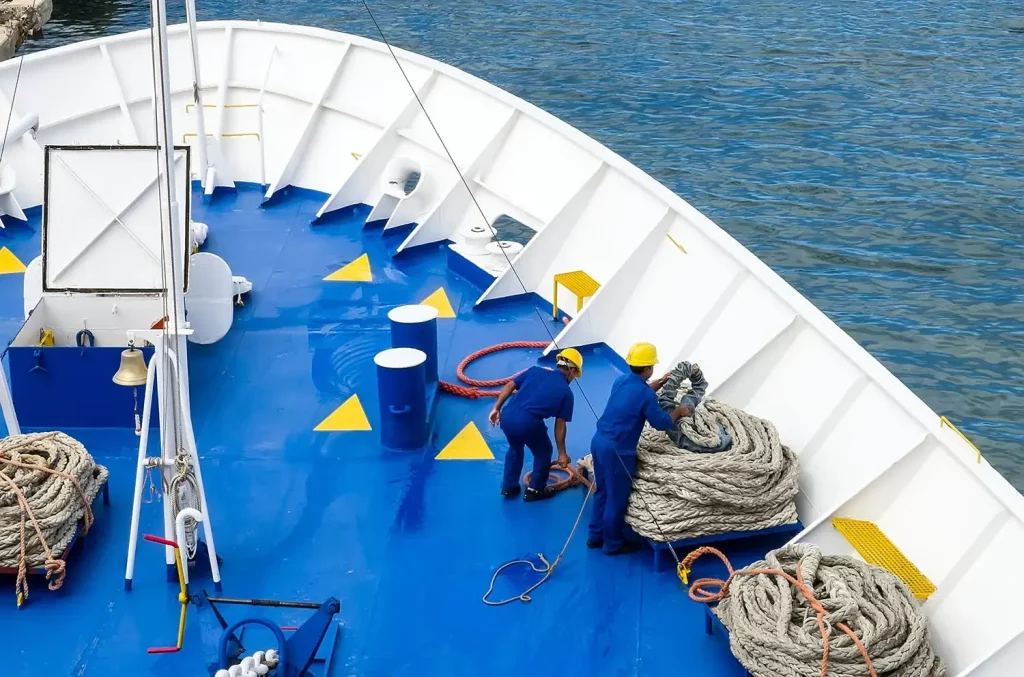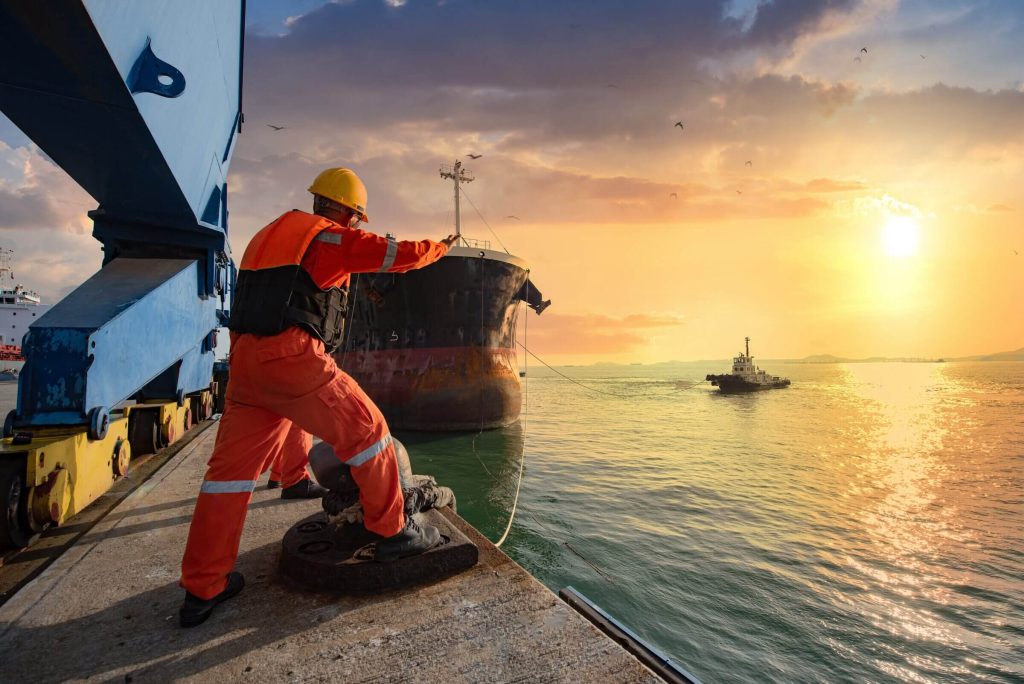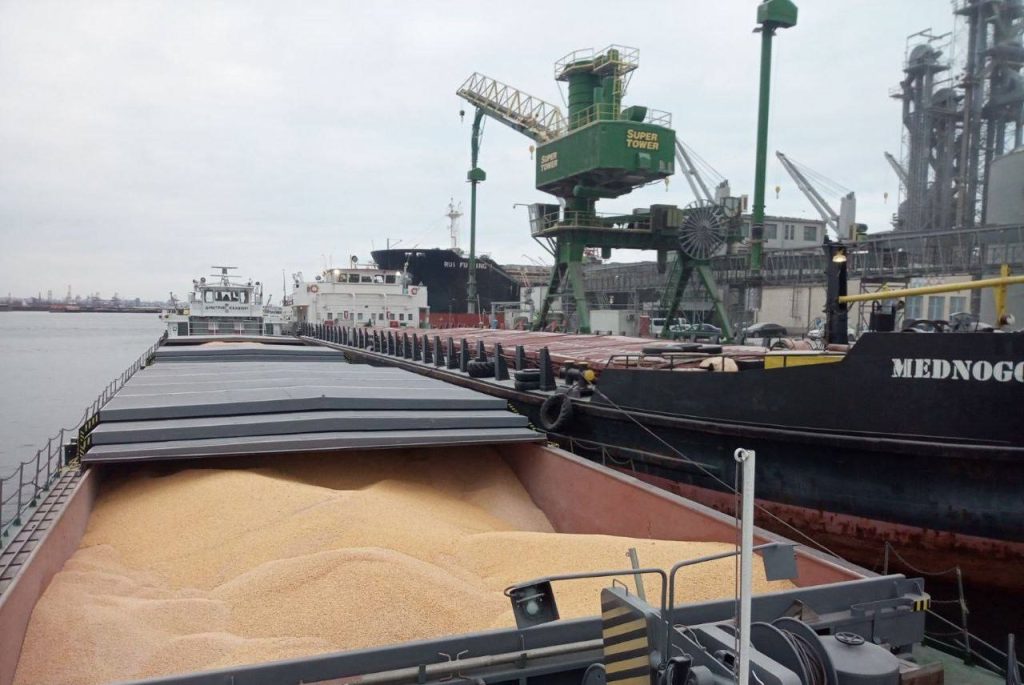Ukrainian sailors are offered to register for tax: what do experts think?

At the end of June, a number of deputies introduced the bills “On Amendments to the Tax Code of Ukraine Regarding the Special Taxation Regime of Seafarers” and “On Amendments to Certain Legislative Acts Regarding the Special Taxation Regime of Seafarers”. Among the initiators was Yulia Tymoshenko, who recently reminded us of herself with a passionate speech from the rostrum of the Verkhovna Rada in defense of the elimination of the independence of the NABU and the Special Anti-corruption prosecutor’s Office.
As of June 30, the document was being reviewed by the Verkhovna Rada Committee on Finance, Tax and Customs Policy, headed by Danylo Hetmantsev.
In light of recent events with the abolition-granting of independence to law enforcement agencies, we consider it especially important to closely monitor any new legislative initiatives. USM has examined what the deputies have prepared for Ukrainian seafarers.
The main idea of the bills is to establish the possibility of voluntarily registering for tax purposes for seafarers who are on voyages abroad for more than 183 days. They are offered to pay personal income tax of 18%, as well as 5% military duty and social security contributions of 22%.
Experts are critical of the idea of introducing a full tax burden for Ukrainian sailors. In their opinion, such an approach is inexpedient and risky given the specifics of the work of this category of workers.
In particular, USM’s interlocutor, crewing superintendent Serhiy, believes that before the adoption of the relevant draft laws, the system of taxation of sailors did not actually work. According to him, the absolute majority of representatives of the profession did not declare income voluntarily, and submitting declarations was more an exception than a rule. He suggests that the introduction of a total tax burden of 45% will be a shock for sailors, who have not become wealthier during the war.
“The structure of expenses has changed for the better — housing rent, food, utilities, etc. When a sailor is on vacation abroad, sometimes the family is there all the time, sometimes they come for a date. Plus, 45% of the tax will instantly turn the sailor away in search of other options,” Serhiy noted. In turn, the director and founder of the company “NSM Crew Management” Valentina Shal also calls the full tax burden for sailors unfair. She emphasizes that most of them work under contracts with foreign companies, do not use the Ukrainian infrastructure within the framework of their professional activities, and independently pay for training, moving, and medical examinations. According to her, equating sailors to employees who receive income in Ukraine is a wrong strategy that can only increase shadowing. Valentina adds that until now, the taxation system for sailors remained uncertain: some did not pay taxes at all, others faced the risk of double taxation, and there were no clear mechanisms for registering income.

Self-employed persons
The draft laws also provide for the equalization of Ukrainian seafarers with self-employed persons in the context of taxation. Experts note both the advantages and potential risks of such an approach.
Serhiy notes that currently no clear legal and social status has been defined for seafarers. He emphasizes that it is not clear how the pension system will work in the new conditions: seafarers will probably either pay 22% of the SSC or will be forced to buy additional experience on their own. Insurance also remains problematic: usually shipowners provide insurance coverage only for the period of the seafarer’s stay from the departure airport to the arrival airport after the contract ends. During the vacation period, seafarers, according to the expert, do not have any social guarantees or insurance support.
Valentina, in turn, considers the idea of equalizing seafarers with self-employed persons logical and justified under the current conditions. In her opinion, this approach takes into account the specifics of the work: the absence of a permanent employer in Ukraine, independent conclusion of contracts with foreign companies and work outside the framework of ordinary employment relations. At the same time, she warns that with the status of self-employment, seafarers do not automatically receive access to full social protection – including sick leave, pension and payments in the event of an accident.
“If they do not voluntarily pay the SSC, they will not have insurance experience and may be left without a pension or social benefits. Therefore, it is important that in parallel with such a tax regime, a mechanism for voluntary participation in the social insurance system is clearly prescribed and accessible,” the expert commented.
Mobilization
Valentina Shal reminded that currently, a mechanism for deferring mobilization is in place for seafarers, enshrined in the Resolution of the Cabinet of Ministers of Ukraine No. 992 of August 9, 2023 — formally, they have the right to leave and make reservations, but in practice, due to complex bureaucratic procedures, incoordination of bodies, and the lack of clear criteria, this mechanism works ineffectively.
One of the advantages of the new bill is the declared possibility for seafarers to receive a deferment from mobilization. Serhiy noted that such an “advantage” actually appeared late — already in 2022, many seafarers were looking for ways to go abroad to work and then did not return to Ukraine between contracts. Currently, almost everyone who had the opportunity has already organized their activities outside of Ukraine, and the system itself arouses distrust: it remains unclear how exactly the provisions on the deferment period will operate — for example, whether it is valid only for the duration of the contract or for a fixed period of two years.
According to the draft, the deferral will be terminated in cases of loss of self-employed status, invalidity of documents, termination of the contract with the shipowner, loss of citizenship, or exceeding 183 days of stay in Ukraine without working on a ship. Serhiy points out that due to the specifics of seafarers’ work (for example, flexible schedules, variable rotations, delays and early departures), compliance with such a formal criterion as 183 days can be very difficult or accidental.

Resposibility
If the intermediary company does not notify the tax office about the conclusion of the contract, the responsibility falls on the seafarer. Serhiy noted that such a requirement creates additional pressure on both the seafarers and the intermediary companies.
“The intermediary company (in not very well-regulated shipowner-crew relations) may not even know the exact date of the seafarer’s return, because this is done in many cases without its participation. And the seafarer, of course, may not be “up to it” in the first weeks after returning home,” the expert says.
Valentina agrees and adds that placing responsibility on an individual for the actions or inaction of the intermediary company is “not entirely fair, especially considering that the seafarers usually have no influence on whether the company will fulfill its obligations to the tax office.” Moreover, they often conclude contracts with foreign or semi-official agents, whose activities in Ukraine are difficult to control. It turns out that the seafarer is forced not only to pay taxes on his own, but also to duplicate the work of the intermediary, monitor reporting, registration and notifications – otherwise he risks getting a fine or problems with the law. This can scare people away from legalization. It would be more logical to oblige companies to bear primary responsibility, and for seafarers to create a mechanism for self-registration in the event that the agent has not fulfilled his functions, emphasizes Valentina.
Does the shipowner need a Ukrainian sailor?
In a separate post on its social media, the Trade Union of Marine Transport Workers Trade Union of Ukraine (MTWTUU) reported that “if the tax burden on Ukrainian seafarers is perceived as too high or unfair compared to seafarers from other countries, this may reduce their competitiveness in the global labor market. Shipping companies may prefer to hire seafarers from countries with simpler or lower tax regimes.”
Both USM interlocutors agree with this. According to Serhiy, instead of a lower percentage but stable taxation of a significant amount for the benefit of the state’s economy, the state may face the risk of not returning to Ukraine at all.
“They will not only not pay taxes, but even spend foreign currency, buying goods and services at home (the volumes are huge), as was the case before the war. Instead, they will boost the economies of Romania, Poland, Georgia, etc.,” the crewing superintendent emphasized. Changing the tax region will also lead to similar consequences. Finally, the shipowner may be reluctant to hire seafarers from Ukraine, considering them too “problematic” not only because of the war, but also because of the tax rules.
Valentina shares a similar opinion: if the new tax rules are too burdensome or difficult to implement, this can cause two negative trends. First, Ukrainian seafarers may lose competitiveness, because shipping companies do not want unnecessary bureaucracy – it is easier for them to hire a Filipino, Indonesian or a seafarer from the Baltic countries, where the tax regimes for such workers are either very simple or almost non-existent. Second, Ukrainians themselves may look for ways to circumvent the system – for example, work through foreign agencies without formalization in Ukraine, not register themselves as self-employed, avoid tax reports, etc.
“All this will nullify the reform. Therefore, the success of the bill depends not only on the tax rate, but also on how simple, profitable and safe it will be for a seafarer to fulfill his tax obligation. If the system is excessively complicated or punitive, some people will simply leave it or go into the shadows,” the expert summarized.
According to Valentina Shal, cases when foreign shipowners preferred seafarers from other countries due to the tax risks of Ukrainians are not uncommon. Foreign shipowners always strive to minimize their risks and administrative costs, so if there are complex tax or legal conditions in the seafarer’s country, this can be a strong argument for refusing to hire such employees. In Ukraine, the situation with the taxation of seafarers has long been opaque and controversial, which is why some companies preferred seafarers from countries with simpler or more loyal tax regimes, such as the Philippines, Georgia or the Baltic countries.
“This is confirmed by numerous professional surveys, statements by trade unions, and labor market analytics in the maritime sector. Therefore, the introduction of clear and competitive tax conditions in Ukraine is of key importance for maintaining the positions of Ukrainian seafarers in the global labor market,” she says.

What about crewing?
The MTWTUU also notes that the draft laws “do not at all take into account the specifics of the activities of companies that provide services for mediation in employment abroad, and impose additional obligations on them to inform the tax service.”
Valentina Shal noted that the draft laws do indeed impose on intermediary companies the obligation to notify the tax service about concluded contracts, but do not clearly prescribe how exactly this should happen, within what time limits, who is responsible in case of violation, and what responsibility they will bear. This creates legal uncertainty and risk for the companies themselves. If the specifics of their activities are not taken into account — for example, that some of them work outside of Ukraine or do not have direct legal obligations to our authorities — the implementation of such requirements may be either impossible or will lead to the fact that some companies will leave the market or start working semi-legally.
As a result, both seafarers, who will be left without intermediary services, and the state, which will not receive taxes, will suffer. So if the law should impose obligations on intermediaries, then it should be done taking into account the realities of their work, otherwise it will create new barriers instead of solving problems.
Serhiy adds: the specificity is that the intermediary is “not a shipowner”. There is a big difference between them in many aspects: responsibilities, actions and consequences.
“Additional resources in crewing will be needed, clear reporting, additional checks and audits by control bodies, possibly fines and sanctions from people who are far from understanding the process,” he says.

Consequences
If the bills are signed and come into force as laws, will it be easier for a seafarer to stay abroad and continue working, paying taxes in another country, without returning to Ukraine?
According to Valentina Shal, for many seafarers this may indeed be an easier option. If a complex, bureaucratic taxation system with numerous requirements and controls appears in Ukraine, while other countries offer more transparent or soft conditions, seafarers may simply stay abroad and pay taxes there. This is especially true for those who already have experience working and legally employed in other jurisdictions. For Ukraine, this means losing control over a large segment of taxpayers and reducing budget revenues. Therefore, in order to maintain the motivation to return and pay taxes in Ukraine, it is necessary to create the simplest, most advantageous and transparent conditions possible.
In general, the expert positively assesses these draft laws: “They are aimed at solving a long-standing problem — the lack of a clear mechanism for taxation of Ukrainian seafarers working abroad. The proposed rate of 6.5% looks fair and stimulates voluntary legalization of income, while allowing the state to collect taxes from a large category of citizens who previously often avoided paying. This is a compromise between the interests of the state and seafarers.”
But, Valentina emphasizes, the main thing now is to ensure convenient implementation, without unnecessary bureaucracy, and to prevent abuse.
Serhiy, on the other hand, gives a low overall assessment of the project, which, in his opinion, “is a raw product, the development of which was unlikely to involve industry experts and the maritime community, which for the most part has a negative attitude towards any tax initiatives.”
“Yes, taxes must be paid by all citizens, they are extremely important for defense capability, post-war recovery, even for economic growth in peacetime. But besides the desire to fill the budget, we need effective tools to do it,” he reminds.
The expert adds that there are too many challenges now without taxes. But this issue should not be abandoned: citizens must pay taxes, because the state desperately needs it.
“But the mechanism should be clear and understandable. Otherwise, pay more, you are a citizen, and when we don’t know anything about pensions, insurance and social benefits, the self-employed are not taken into account. We need balanced, non-trivial solutions, something like J. Nash’s non-zero-sum games. When the state, society and sailors win, everyone wins. Otherwise, the sum is zero, or everyone loses,” the USM interlocutor summed up.
***
It should be noted: the MTWTUU considers the only positive aspect of the draft laws to be a step towards recognizing that Resolution No. 992 is “ineffective”, making changes to the grounds for obtaining a deferral, and granting seafarers the right to travel abroad without hindrance to work on seagoing vessels. In other aspects, the trade union sees a number of significant shortcomings. You can read more about them at the link.
Olga Horbenko.





